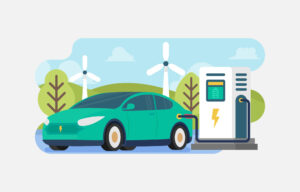Can You Convert Any Car to EV? A Comprehensive Guide

Introduction As the world shifts towards sustainable and eco-friendly transportation solutions, electric vehicles (EVs) have gained significant popularity. They offer numerous benefits, including reduced greenhouse gas emissions and lower operating costs. But what if you already own a conventional gasoline or diesel vehicle and want to make the switch to electric? Can you convert any car to EV? In this blog, we will explore the feasibility of converting a traditional vehicle into an electric one and discuss the various factors and considerations involved in the process.
The Feasibility of Converting Any Car to EV
Converting a gasoline or diesel car into an electric vehicle is a complex and often costly endeavor. While it’s theoretically possible to convert most vehicles to electric power, several factors come into play:
Age and Make of the Vehicle:
- Older vehicles may not be suitable candidates for conversion due to their outdated technology and lack of necessary components. Certain makes and models may also be more challenging to convert, as they were not designed with EV conversions in mind.
Vehicle Weight and Size:
- Larger, heavier vehicles might require more extensive modifications and a larger battery pack to maintain a reasonable driving range. This can add to the cost and complexity of the conversion.
Available Space:
- EV conversions require space for batteries and other electric components. Smaller vehicles may lack sufficient space, making the conversion more difficult.
Mechanical Condition:
- The condition of your vehicle’s existing components, such as the suspension, brakes, and drivetrain, can impact the feasibility of conversion. Upgrading or replacing these components may be necessary.
Cost Considerations:
- Converting a car to EV can be expensive. Costs can vary significantly depending on the vehicle’s complexity, the quality of components used, and whether you perform the conversion yourself or hire professionals.
Steps Involved in Converting a Car to EV

- If you’ve determined that your vehicle is a good candidate for conversion, here are the general steps involved in the process:
Remove the Internal Combustion Engine (ICE):
- The first step is to remove the existing gasoline or diesel engine and associated components. This requires mechanical expertise and specialized tools.
Install an Electric Motor:
- Select an appropriate electric motor and mount it in the vehicle. The motor should match the vehicle’s weight and performance requirements.
Battery Installation:
- Install the battery pack, which is typically the heaviest and most expensive component of an EV conversion. Proper placement is crucial for weight distribution and safety.
Controller and Inverter:
- Connect the electric motor to a controller and inverter to manage power output and ensure the motor runs efficiently.
Charging System:

- Set up a charging system that’s compatible with your vehicle. This may include an onboard charger or a separate charging unit.
Wiring and Safety:
- Wiring and safety systems are crucial. Ensure that all components are correctly connected, and implement safety features such as thermal management for the battery pack.
Testing and Tuning:
- After the conversion, thoroughly test the vehicle to ensure it operates safely and efficiently. Fine-tune the system as needed.
Conclusion In synopsis, while it’s actually conceivable to change over numerous vehicles into electric vehicles, the practicality of doing so relies upon different variables, including the vehicle’s age, size, condition, and cost contemplations. Changing a vehicle over completely to EV is a mind boggling project that requires mechanical skill and a huge speculation.
Prior to setting out on an EV transformation, it’s fundamental to do intensive exploration, talk with experts, and think about the complete expense of the venture. At times, selling your flow vehicle and buy a plant made electric vehicle that accompanies guarantees and backing from the manufacturer may be more viable. At last, the choice to switch any vehicle over completely to EV ought to be founded on your particular requirements, spending plan, and obligation to reasonable transportation.
Recall that as innovation propels, the accessibility of change units and ability in EV transformations might improve, making the cycle more available and financially savvy from now on.


